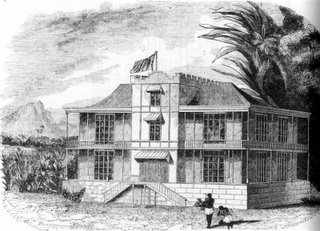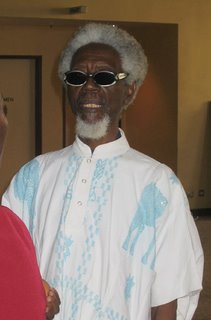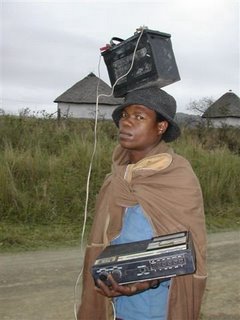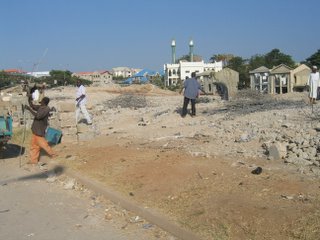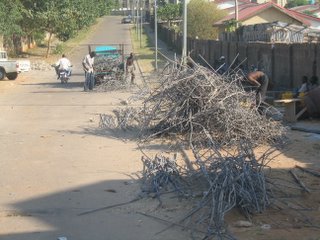I was struggling with a slow connection writing my last post. I wanted to add that anyone black, white or brown getting into politics now may be tempted into the Tory camp on the basis of 8 years of neo-Labour. Blair's rule has hardly been inspiring for youngsters, and there is always something tempting about underdogs. On some issues, the Tories are now to the left of Labour anyway - witness their resistance to the 90-day detention of suspected terrorists that came up recently. Older folks (mid-30's and above) have all too keen a memory of Thatcher and her many disasters (sinking of the Belgrano, denial of society, privatisation of the railways etc etc), so we could never switch to Blue.
As someone brought up in a politicised, left-wing environment and a Primitive Methodist family background two or three generations ago, it is hard to see Blair's years as anything other than a complete failure, morally and politically. It used to be said that devolution was an achievement, but what, apart from wads of cash burnt on a new building in Scotland, has that achieved? Blair came in on an Education Education Education ticket, but from what teacher friends tell me in London, so many children are wild and out of control. Nothing has been done with A-levels apart from nervous tinkering at the edges - when wholescale reform was clamoured for by those in the know. But the thing that History will damn him for is the Iraqi blood on his hands. We now know that around 500,000 children died during the sanctions (and the sinister oil-for-food programme) - Blair was around when this happened. And Blair's subsequent collusion with the Bush morons and all those dodgy dossiers will sink his reputation for good. Just as Bush is now seen as the worst President in living memory, so too, Blair's premiership will be seen as one of the weakest in modern history - giving in to every last neo-con whim.
The hope is that when Brown comes in, some kind of rapprochement will take place with traditional socialist values: the importance of Unions, limitations on Corporate power (such as a strong definition of Corporate Manslaughter), as well as a build up in the renationalisation movement (making the railways fully nationalised again), as well as a less interventionist foreign policy.
But beyond all this, climate change is surely the biggest issue that faces us all. It looks like the greenhouse effect came too quickly to be mitigated by peak oil. Something drastic needs to be done, and Europe can lead the way. America needs to be isolated by the world in its refusal to sign up even to Kyoto. There needs to be more investment in new solar technologies (especially the new printed sheet tech). On these issues, none of the mainstream parties are facing up to realities.
Read more...


